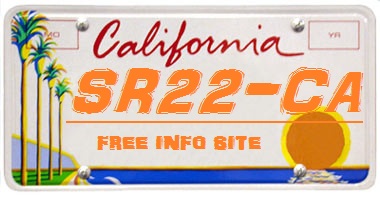November 20, 2012
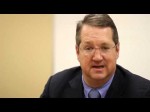
DUI Attorney Michael Bowser explains sobriety check points (or road blocks) in Massachusetts, which are especially prevalent during the holiday season. Attorney Bowser has successfully defended hundreds of cases for clients charged with drunk driving, commonly referred to as “Operating Under the Influence” (OUI) in Massachusetts. Attorney Bowser has developed a well earned reputation for being one of the top drunk driving defense attorneys in Massachusetts and New Hampshire. www.bowserlaw.com
Tags: bowser, check-points, clients-charged, drunk-driving, holiday, influence, massachusetts, operating-under, road-blocks
Posted in DUI Check Point California, Video | Comments Off on Massachusetts Sobriety Check Points
July 30, 2012
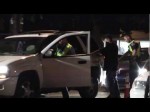
DWI Sergeant from the Albuquerque Police Department DWI Enforcement Unit talks about drinking while driving (DWI) sobriety check point that yields the arrest of 16 people suspected of driving while either intoxicated or under the influence. www.dps.nm.org Listed below are the penalties for drinking and driving DWI in The State of New Mexico. 1st Offense – MISDEMEANOR 6 months to 1 year license revocation (1 year if under 21) Up to 90 days jail. Mandatory: DWI school, alcohol evaluation, ignition interlock for 1 year, community service. Other: treatment 2st Offense – MISDEMEANOR 2-year license revocation. Up to 364 days jail, 96 hours mandatory. Up to $1000 fine, $500 mandatory Other mandatory penalties: alcohol evaluation, community service, treatment, ignition interlock for 2 years. Other: Up to 5 years probation. 3rd Offense – MISDEMEANOR 3-year license revocation. Up to 364 days jail, mandatory 30 days. Up to $1000 fine, $750 mandatory . Other mandatory penalties: alcohol evaluation, community service, treatment, ignition interlock for 3 years. Other: Up to 5 years probation. 4th Offense – FELONY 4th DEGREE Lifetime license revocation with 5-year court review. Up to 18 months prison, 6 months mandatory. Up to $5000 fine. Other mandatory penalties: alcohol evaluation, treatment, lifetime ignition interlock with 5-year court review. 5th Offense – FELONY 4th DEGREE Lifetime license revocation with 5-year court review. Up to 2 years prison, 1 year mandatory. Up to $5000 …
Tags: albuquerque, alcohol, apd, attorney, driving, dui, dwi, influence, lifetime, mandatory, months-prison, offense, penalties, the-penalties
Posted in DUI Check Point California, Video | Comments Off on Albuquerque Police Department APD Sobriety Check Point – Dude Where’s My Car
July 18, 2012
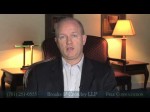
www.brooksandcrowley.com Massachusetts criminal defense attorney Steve Brooks talks sobriety check points and what happens if you’ve been arrested for driving under the influence. Driving while under the influence (or DUI) arrests can happen when you’re pulled over for reckless driving or if you happen to go through a sobriety check point. A sobriety check point is where officers are gathered to check each driver for being impaired. If the officer believes you’re impaired in any way, you will be asked to perform tests that will show whether or not you’re driving under the influence. These tests are given by officers from both Massachusetts state police and the local police department. These tests have to be proven and without doubt in a court of law in the state of Massachusetts. We need to show that the tests were performed correctly by the officers and that the machines were working correctly. The burden is on the government to show that you were guilty of the charge; if they cannot do that then we can get these harmful charges against you dropped. Watch the video now to learn more. For more information about DUI law and my firm, visit our educational website at http where you can get more information and even free consultation regarding your case. If you have legal questions, I want you to call me at (781) 251-0555. I welcome your call. Brooks & Crowley, LLP 450 Washington Street Suite LL9 Dedham, MA 02026 (781) 251-0555
Tags: 0.08, arrested, breath test, driving, educational, field test, influence, legal-questions, police, sobriety-check, street-suite, watch-the-video, website-at-http
Posted in DUI Check Point California, Video | Comments Off on What Happens After an Arrest at a Sobriety Checkpoint? MA Criminal Defense Attorney Steve Brooks
January 31, 2012
Public interest groups are urging citizens to back a bill up for a vote Tuesday in the California Assembly that would require the disclosure of large donations to political advertisements shown across the state. Under AB 1148, also known as the California Disclose Act , the three largest donors to TV, radio, web and printed political advertising must be named. “This would be a huge win for democracy in California, allowing citizens to give proper weight to the different messages they hear and make informed decisions at the ballot box,” MapLight , a nonprofit that tracks the influence of money in politics, wrote in an email message to supporters. The California Chamber of Commerce has announced its opposition, dimming the bill’s prospects, the San Jose Mercury News stated. Beverly Hills voters who want to share their thoughts on the proposal with 42nd Assembly District representative Mike Feuer (D-Los Angeles) can contact his office here . (Note: Beverly Hills is joining the newly created 50th Assembly District in the November 2012 election due to redistricting. Until then the city is represented by Assemblyman Feuer as part of the 42nd Assembly District.) Be sure to follow Beverly Hills Patch on Twitter and “Like” us on Facebook . See the original post here: State Assembly Bill Seeks to Disclose Political Ad Donors
Tags: assembly, ca news, city, disclose, disclosure, influence, interest-groups, large-donations, mercury-news, state, then-the-city
Posted in Local News | Comments Off on State Assembly Bill Seeks to Disclose Political Ad Donors
December 25, 2011
ESCONDIDO, Calif. — Delfino Aldama was fixing a customer’s brakes this month when his smartphone chimed with a text message that tipped him to a police checkpoint more than an hour before officers began stopping motorists. The self-employed auto mechanic frantically called friends with the location and drove an alternate route home. The Mexico native had reason to be alarmed: He does not have a driver’s license because he is in the United States illegally, and it would cost about $1,400 to get his Nissan Frontier pickup back from the towing company. He has breathed a little easier since he began getting blast text messages two years ago from activists who scour streets to find checkpoints as they are being set up. The cat-and-mouse game ends Jan. 1 when a new law takes effect in California to prohibit police from impounding cars at sobriety checkpoints if a motorist’s only offense is being an unlicensed driver. Thousands of cars are towed each year in the state under those circumstances, hitting pocketbooks of illegal immigrants especially hard. When Aldama’s 1992 Honda Civic was towed from a checkpoint years ago, he quit his job frying chickens at a fast-food restaurant because he had no way to make the 40-mile round trip to work. He abandoned the car rather than pay about $1,200 in fees. “A car is a necessity, it’s not a luxury,” said the 35-year-old Aldama, who lives in Escondido with his wife, who is a legal resident, and their 5-year-old son, a U.S. citizen. Assemblyman Gil Cedillo, a Los Angeles Democrat who tried unsuccessfully to restore driver licenses to illegal immigrants after California revoked the privilege in 1993, said he introduced the bill to ban towing after learning the notoriously corrupt city of Bell raked in big fees from unlicensed drivers at checkpoints. A sharp increase in federally funded sobriety checkpoints in California has fueled controversy. The National Highway Traffic Safety Administration paid for 2,553 checkpoints last year, which authorities say helps explain why deaths caused by drunken drivers dropped to an all-time low in the state. Police also ask for drivers’ licenses at the sobriety checkpoints. Supporters of the vehicle impounds say unlicensed drivers are also a roadside hazard and that the new law is misguided. “It’s a terrible law, really disappointing,” said Jim Maher, who sharply expanded checkpoints in Escondido after being named police chief in 2006. All but three U.S. states – New Mexico, Utah and Washington – deny driver’s licenses to illegal immigrants but controversy over checkpoints has been strongest in California. Cedillo believes that’s because a 1995 state law has allowed police to impound vehicles from unlicensed drivers for 30 days, resulting in fees that can easily top $1,000. Towing practices vary widely across the state. San Francisco allows 20 minutes to find a licensed driver to claim a vehicle at a checkpoint. The Los Angeles Police Department eased rules on 30-day impounds in March. Checkpoints have divided Escondido, a city of 144,000 people near San Diego whose Latino population has surged in the last 30 years. Latinos moved into aging neighborhoods near downtown as newer subdivisions gradually spread to avocado orchards, vineyards and citrus groves. Nearly half the signs at a big strip mall near City Hall are in Spanish. Like Hazleton, Pa., and Farmers Branch, Texas, authorities in Escondido have tackled illegal immigration on their own. In 2006, the City Council voted to require landlords to check tenants’ immigration status but a federal judge blocked the ordinance and it never took effect. Last year, Escondido police forged an unusually close alliance with U.S. Immigration and Customs Enforcement, which has four agents at police headquarters to check the immigration status of people who are questioned at checkpoints or elsewhere. “It’s a never-ending battle,” said Concilman Ed Gallo, a New Jersey transplant who blames illegal immigration for overcrowded homes and schools. “We didn’t pay attention to it for 25 years and look what happened. It was a long, slow process.” Several residents and a labor union sued Escondido in state court this month to create City Council districts, a bid to increase Latino representation. The lawsuit says the council has pursued “aggressive anti-immigrant policies that have inflamed racial tensions.” Maher (pronounced mah-HAR’) said the partnership with ICE is aimed only at rooting out illegal immigrants who commit crimes after arriving in the United States, including being previously deported. Those whose only offense is being in the country illegally won’t be bothered by his officers, nor will any crime victims or witnesses. Police say they have turned over 670 people to ICE for immigration proceedings since the joint effort began in May 2010. Their most common offenses were previous convictions for driving under the influence and drugs, with lower numbers for theft and assault. “We certainly have enough of our own criminals. We don’t need someone else’s here,” Maher said. Escondido has impounded more than 3,200 vehicles since 2006, mostly at the federally funded sobriety checkpoints. The city had towed about 1,000 at driver-license-only checkpoints until the American Civil Liberties Union and El Grupo, a Latino advocacy group, threatened a lawsuit in 2009, contending they violated the state vehicle code. Maher insists he is targeting unlicensed drivers, not illegal immigrants or Latinos. Six towing companies each pay the city $75,000 a year to take turns at checkpoints, keeping impound fees for themselves. About one-third of the cars towed are believed to be abandoned, allowing the towing companies to auction them. “It was kind of like letting them steal cars,” said Olga Diaz, the only Hispanic on the City Council. Websites that have sprung up in the last two years quickly alert motorists to checkpoints through social media networks and smartphones, severely undermining their effectiveness. A few years ago, Escondido police impounded 50 or 60 vehicles a night. Now they typically get about 20. One of the final checkpoints before the new law takes effect was one of the slowest in memory for many of the 15 officers who stood under bright lights and encountered a December chill. Activists waved signs several blocks away, giving motorist an opportunity to turn away. Police impounded six vehicles – three for driving without a license and three for driving under the influence. Aldama, who paid a smuggler $1,300 to lead him through the mountains east of San Diego on a weeklong trek 13 years ago, was able to reach all his friends before the checkpoint began. One he didn’t call had his 1997 Ford Explorer towed at an Escondido checkpoint a few weeks earlier. The unemployed construction worker surrendered the SUV to the towing company because he couldn’t afford the fees. Link: No More Fear On The Road For Undocumented Immigrants
Tags: beverly hills, ca news, california, country, escondido, explorer, influence, mexico, sports, texas, united-states, wife
Posted in Local News | Comments Off on No More Fear On The Road For Undocumented Immigrants
October 31, 2011
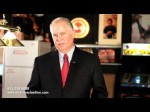
Nashville Criminal Defense Attorney and DUI expert, Rob McKinney, gives information on an individuals rights at a DUI checkpoint in Tennessee. Visit www.mckinneylawfirm.com or call 615-259-9009 for more information.
Tags: court, criminal, davidson, dui, field, gallatin, influence, tests, traffic, trial
Posted in DUI Check Point California, Video | Comments Off on Rights at a DUI Checkpoint
October 23, 2011
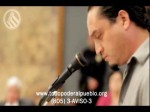
Elliott Gabriel and Francisco “Chavo” Romero of the Oxnard-based Todo Poder al Pueblo Collective (learn more: todopoderalpueblo.org ) issue statement regarding the Collective’s checkpoint campaign and the passage of AB 353, legislation which limits impound and towing policy at the statewide level for unlicensed drivers in California. learn more: www.todopoderalpueblo.org
Tags: city council, derecho, francisco, gabriel, influence, statewide, the-statewide, unauthorized
Posted in DUI Check Point California, Video | Comments Off on Oxnard: DUI Checkpoint Abuse and AB353 (bilingual)
August 24, 2011
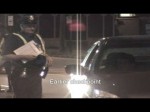
Sponsor: ShireExchange.com – Note that some Ridley vids are now appearing without ads…. Find them at http sobriety checkpoints taxpayers ron paul cops police pulled over.roadblocks questioned tfk trifecta traffic stops free state project mothers against drunk drivers driving. dave ridley report don’t dui driving under the influence staters victimless crimes ridleyreport hazards of new hampshire travel. liberty police state. nh libertarian live free or die checkpoint usa taxes taxpayers irs property tax revolts standoffs. Kelly Thomas fullerton california homeless kill over bus ticket cops shot shoot
Tags: drivers, drunk, drunk-drivers, influence, new-hampshire, news & politics, now-appearing, project, questioned-tfk, ridley-report, sobriety, state-project, taxpayers-irs, travel-liberty
Posted in DUI Check Point California, Video | Comments Off on NH activists save taxpayers from cops
August 12, 2011
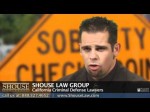
www.shouselaw.com 888.327.4652 A California DUI defense lawyer explains what cops are looking for at sobriety checkpoints. California DUI checkpoints (also commonly referred to as sobriety checkpoints, drunk driving sobriety checkpoints and DUI roadblocks) are becoming more popular as the state cracks down on DUI offenders. Even though California law allows police to operate sobriety checkpoints, they must still follow certain rules and guidelines. If they don’t, people can be wrongfully arrested for Vehicle Code 23152a VC driving under the influence. This is one of the reasons why it is critical to consult with an experienced California DUI defense attorney if you are arrested for a DUI at a sobriety checkpoint. If the cops didn’t follow the correct procedures, it may be possible to get your case dismissed on that basis alone! While the politically correct “stated” purpose of a DUI checkpoint is to deter drunk drivers1, we know better…it’s to arrest drunk drivers. When you approach a sobriety checkpoint, an officer is only supposed to ask you a couple of questions in order to determine quickly whether you display signs of intoxication. The officer will also likely shine a light into your car to see if you have any open containers of alcohol. If the officer believes that you may be impaired, he/she will direct you to an area to perform California DUI field sobriety tests (FSTs). At that point, a typical DUI investigation will ensue. If, after questioning you, the …
Tags: attorney, california, case-dismissed, certain-rules, defense-lawyer, drunk-driving, dui checkpoint, field-sobriety, influence, lawyer, loss of license, reasons, vehicle-code
Posted in DUI Check Point California, Video | Comments Off on California DUI Sobriety Checkpoints
August 12, 2011

www.shouselaw.com 888.327.4652 A California DUI defense lawyer explains what cops are looking for at sobriety checkpoints. California DUI checkpoints (also commonly referred to as sobriety checkpoints, drunk driving sobriety checkpoints and DUI roadblocks) are becoming more popular as the state cracks down on DUI offenders. Even though California law allows police to operate sobriety checkpoints, they must still follow certain rules and guidelines. If they don’t, people can be wrongfully arrested for Vehicle Code 23152a VC driving under the influence. This is one of the reasons why it is critical to consult with an experienced California DUI defense attorney if you are arrested for a DUI at a sobriety checkpoint. If the cops didn’t follow the correct procedures, it may be possible to get your case dismissed on that basis alone! While the politically correct “stated” purpose of a DUI checkpoint is to deter drunk drivers1, we know better…it’s to arrest drunk drivers. When you approach a sobriety checkpoint, an officer is only supposed to ask you a couple of questions in order to determine quickly whether you display signs of intoxication. The officer will also likely shine a light into your car to see if you have any open containers of alcohol. If the officer believes that you may be impaired, he/she will direct you to an area to perform California DUI field sobriety tests (FSTs). At that point, a typical DUI investigation will ensue. If, after questioning you, the …
Tags: california, correct, dui, dui checkpoint, education, influence, know-better-it, los angeles, loss of license, politically, reasons, vehicle-code
Posted in DUI Check Point California, Video | Comments Off on California DUI Sobriety Checkpoints


